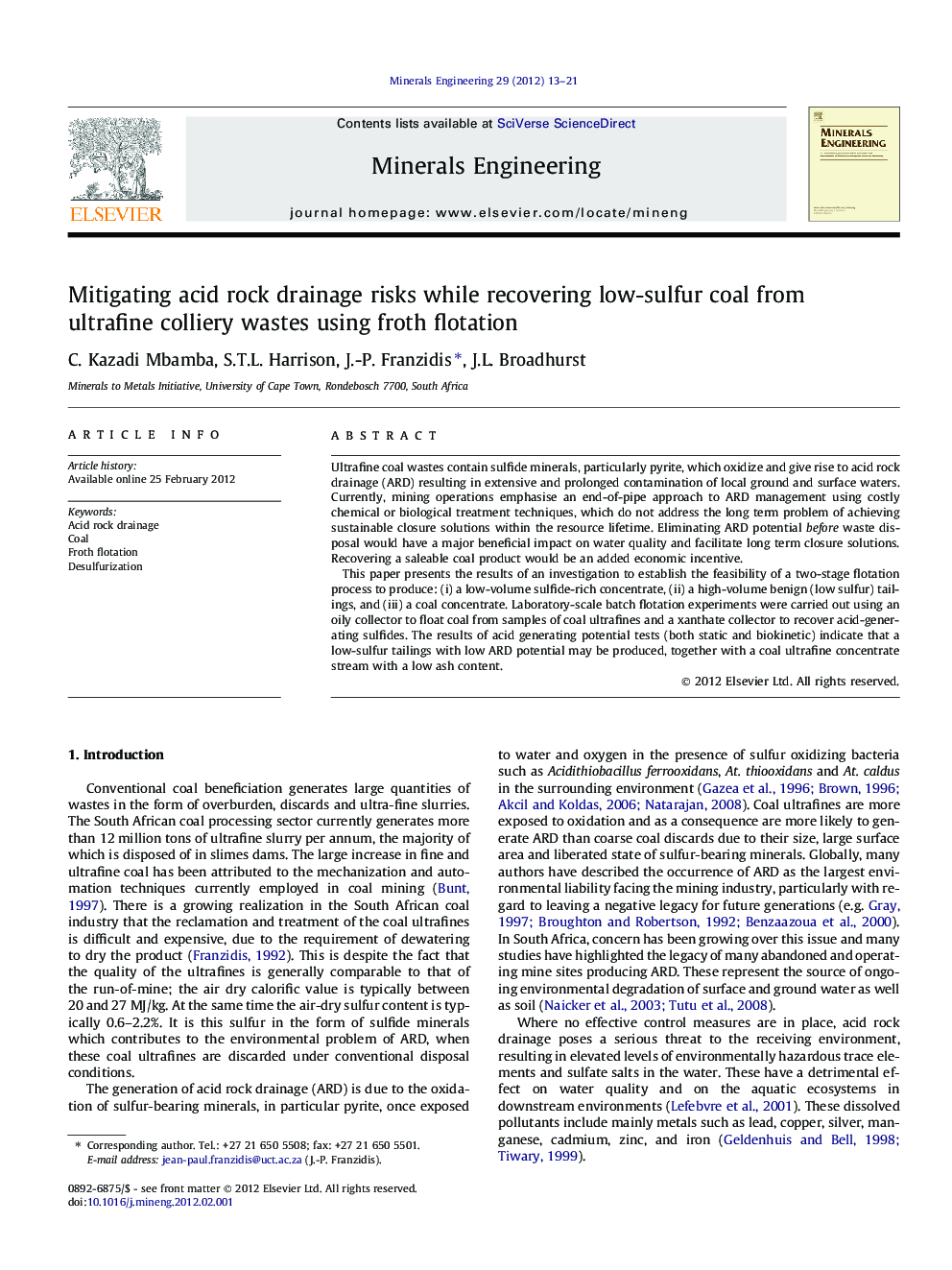| Article ID | Journal | Published Year | Pages | File Type |
|---|---|---|---|---|
| 233682 | Minerals Engineering | 2012 | 9 Pages |
Ultrafine coal wastes contain sulfide minerals, particularly pyrite, which oxidize and give rise to acid rock drainage (ARD) resulting in extensive and prolonged contamination of local ground and surface waters. Currently, mining operations emphasise an end-of-pipe approach to ARD management using costly chemical or biological treatment techniques, which do not address the long term problem of achieving sustainable closure solutions within the resource lifetime. Eliminating ARD potential before waste disposal would have a major beneficial impact on water quality and facilitate long term closure solutions. Recovering a saleable coal product would be an added economic incentive.This paper presents the results of an investigation to establish the feasibility of a two-stage flotation process to produce: (i) a low-volume sulfide-rich concentrate, (ii) a high-volume benign (low sulfur) tailings, and (iii) a coal concentrate. Laboratory-scale batch flotation experiments were carried out using an oily collector to float coal from samples of coal ultrafines and a xanthate collector to recover acid-generating sulfides. The results of acid generating potential tests (both static and biokinetic) indicate that a low-sulfur tailings with low ARD potential may be produced, together with a coal ultrafine concentrate stream with a low ash content.
Graphical abstractFigure optionsDownload full-size imageDownload as PowerPoint slideHighlights► We propose a two-stage flotation process to mitigate ARD in ultrafine colliery waste. ► We test the process using an inertinite-rich medium rank bituminous colliery waste. ► Clean coal product and a low-volume sulfide-rich stream are produced as concentrates. ► The low-sulfur tailings have increased acid neutralizing capacity, reducing ARD risk. ► A new biokinetic ARD potential test confirms the tailings as being non-acid forming.
